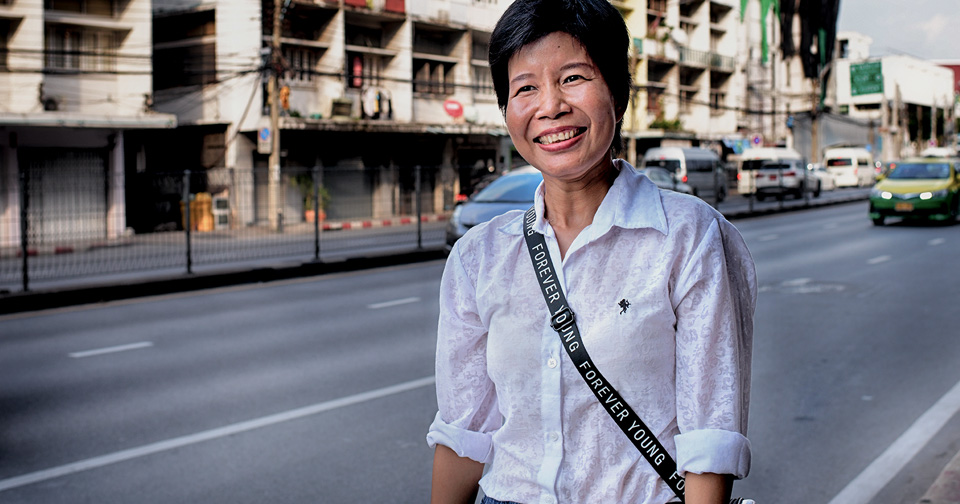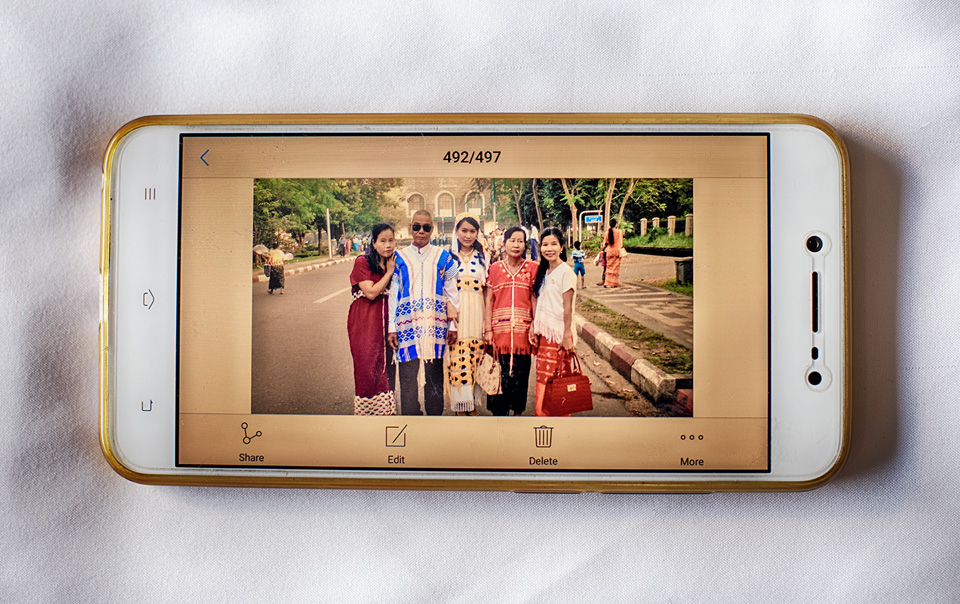Journeys out of the Ordinary | Aye Than Dar’s story
“Know who you will be working for and have a plan.” —Aye Than Dar, Myanmar
Date:

I arrived in Thailand to work as a domestic worker 16 years ago. I came from a village where there was no electricity and I didn’t even know how to use a rice cooker or an iron. To pay for the journey, I had agreed to give up six months of my salary to a local broker. And once I arrived, I never heard from the broker again and received no support.
In the first place I worked, I was looking after two children, but I couldn’t speak Thai at the time, only a bit of English. And the children were very badly behaved and they threw things at me, hit me and would run away. When I told my employer this, he said it was my job to control them and he didn't do anything about it. When I couldn’t take it anymore, I decided to leave. No one had mobile phones back then, but fortunately I had the phone numbers of some relatives who were already working in Bangkok.
I found a job as a domestic worker, but when I first started working there the male employer began to make sexual advances. I didn't know the term, “sexual harassment”, at that time but I knew that the behaviour was wrong. And I had heard some stories about it, but I didn’t think I was “beautiful”, so it wouldn't happen to me. But it did.
I resisted the employer’s advances and finally the harassment stopped. Then I began to take advantage of any small opportunities I was given. I worked in my employer‘s wife’s beauty salon in addition to my domestic duties, and started to learn Thai from the women there. They gave me cash tips as well, and I learned how to save money and was able to support my parents and even put one of my sisters through school. Then, about four years ago, I was approached by someone from a domestic workers’ network, and I became a member.
Then things changed a lot for me. Like when I had first started in my current job, they gave me one day off per week and I thought I was so lucky. But after joining the network I realized that that was my right and that everyone has that same right and it has nothing to do with luck. I was surprised about how many rights I had!
Now I advise others to join the group. And some people still don't understand the benefits and think that, since they already get a day off, they don’t need to join. But it’s so much more than that. We learn about our rights and the importance of our contracts and even about household safety or how to use different appliances and chemical products safely.
Still, I see people coming and they don't even know the name of their employer or their employer’s address, so if they have problems, it's difficult to get help.
My message to the next generation of migrant workers is: Have a well-defined destination and a plan. You should migrate legally, and it’s a good idea to connect with migrant assistance organizations and social groups. Also, know the name of your employer and their address in case of trouble so you can get help."
Object description:
Telephone and family portrait.
Safe and Fair is mobilizing networks of women’s groups and community-based organizations, to raise awareness and change social norms, ultimately eradicating acceptance of violence against women and promoting gender inequality. These networks provide a forum for building women migrant workers’ knowledge on their right to a life free of violence. Women also use networks to share information about resources and services.
